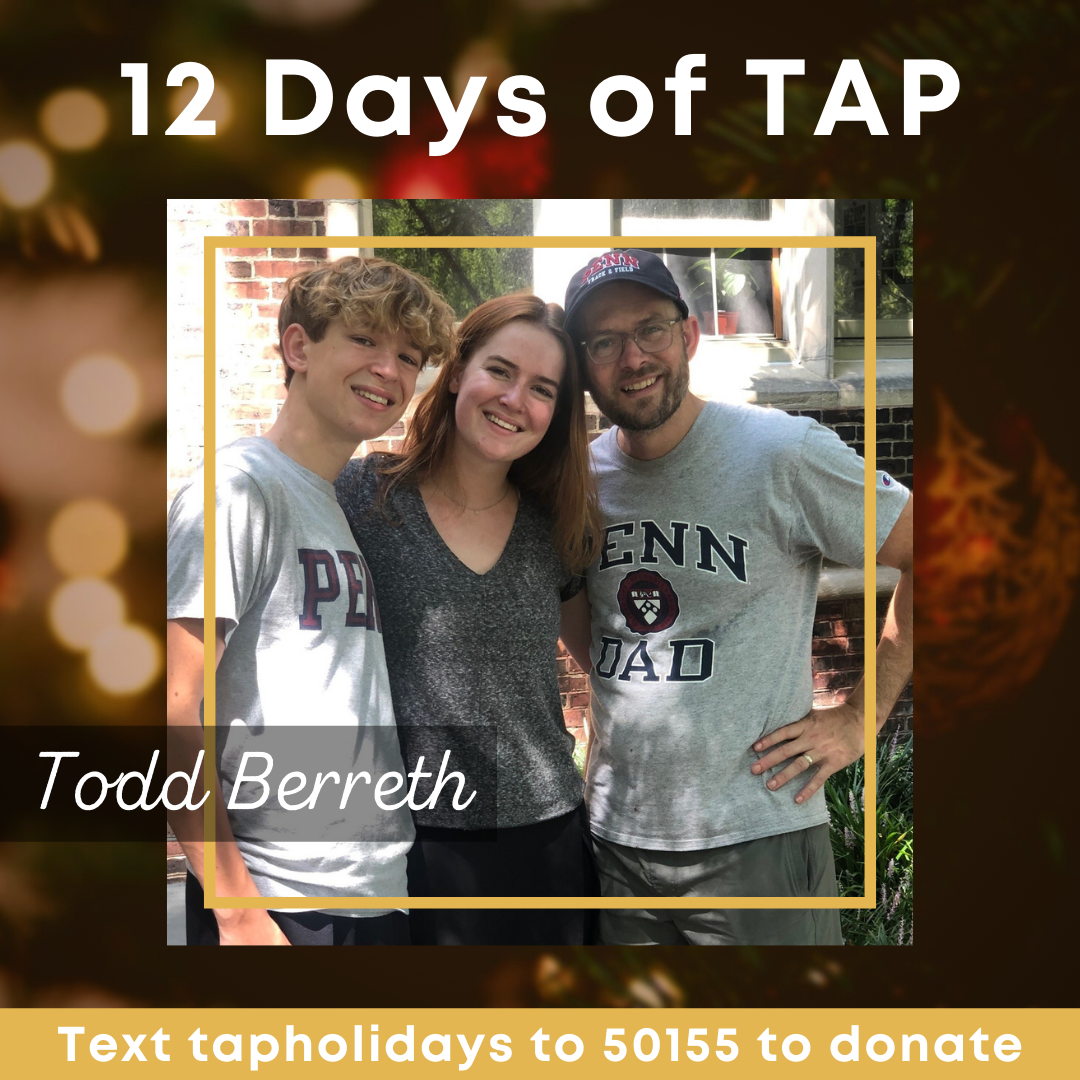
A Note from Maura
Some stories are complete on their own… this one, the story of a determined man and a dedicated family needs little introduction! As a matter of fact, I encourage you to thoroughly read and absorb the narratives contained in this 12 Days Story, watch the corresponding videos and understand the significant impact of aphasia on a family… on their roles, their plans and the strength that sustains them. It’s a personal and professional honor to know Todd, Meg, Kate and Jack Berreth.
________________________________________________
Todd Berreth
I had a massive stroke one year ago this week. I’m sad for the unfortunate nature of it all. I feel scared or despondent sometimes, but life intervenes with happiness and laughing too.
I have exciting adventures frequently. I am a blissful and contented boy. Meg and I go to Beer Study, drink beer (stouts or porters for myself, and IPAs for Meg), and play CodeNames party game. Jack (my son) has some high school cross-country races I can attend. He is a determined and fast sophomore varsity runner. When I watch Jack run, I can be back at school, a high school or college athlete, running in a race too in my past. Kate (my daughter) enrolled in the University of Pennsylvania and she is going there as a freshman. She has fire, passion and heart rolled up into one, and a fierce intelligence that speaks to me. She might major in political science eventually. Twenty years ago, Meg and I completed graduate school at University of Pennsylvania, in Architecture (for myself) and Nurse Midwifery (for Meg). We know that Kate will pursue something of substance and potential whenever she feels like it. 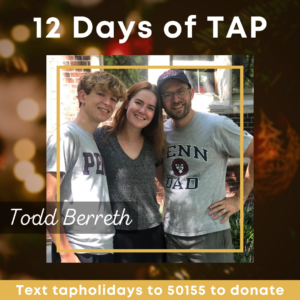
I have aphasia right now. Speech, reading and writing are hard problems to solve. I am worried sometimes but then lightness ensues, words become easier with time, and communication is more fluid and natural with effort. I like public speaking, a lot, but I’ll slow down for a while until aphasia eases up a little. Speech is really vital for my profession, an assistant professor of art and design, and its various responsibilities. I focus on humor for mental stress and strain. Laughter is the key to anything with learning difficulties.
Meg, my wife, is my heart and my light. She stood beside me at my bedside for days after the stroke, and then for 5 weeks of rehabilitation therapy in the hospital, and then at home afterward. She has given me one year of enthusiastic and focused motivation and support. Meg is sad and exhausted sometimes about the stroke and the aphasia.
On top of that, Meg’s mom died last month which was hard for us all. She had to go to the darkness, beyond the other side, to lightness, lovely feelings and hope.
TAP (Triangle Aphasia Project Unlimited support groups) are a God-sent for me…Jesus, Allah, Buddha, Vishnu, etc. are there for support! I have a TAP reading group on Tuesday morning. I am reading ‘Concussion’, by Jeanne Marie Laskas, about NFL concussions and brain injury and Dr. Bennet Omalu discovery of CTE (Chronic Traumatic Encephalopathy). Dr. Omalu identified brain trauma, lesions and torsions of the brain structure, from several dead ex-NFL players in the Pittburgh Steelers organization, and the aftermath of it. We’ll finish up the book next week, and then read a novel by Catherine Gildiner, ‘Too Close to the Falls’, in three weeks after the break.
I have a TAP Movie Group Wednesday mornings (“The Artist”, “City Lights”, “Planes, Trains, and Automobiles”, and “Roxanne”, etc.), three TAP Conversations and Connections Groups meeting other times of the week, a Back to Work Group on Thursday night, and then News & Current Events Group sometimes. Great schedule! The speech therapists are awesome, all of them! We discuss inspired conversations on various topics, holding my hand a little bit sometimes, but encouraging me to try harder in a motivating and helpful manner.
Rich Bell, my brother-in-law, helps me with speech and conversational fluency. We talk about family concerns and news of the week and have lively discussions, kvetching, playful banter, etc. while doing so. We started at the beginning of the stroke recovery process, 10 months ago, with words, nouns, verbs and adjectives, tenses and conjunctions, meanings of the words and flow of them. I wrote this letter and Rich then proofread it. Rich is outstanding in every way!
I play Dungeons and Dragons each Sunday afternoon, with Trevor Berreth (my brother) and Matt Curtis (my brother-in-law) and will continue for a while into the future. Trevor is a great dungeon master, and he creates some difficult problems to solve, ad infinitum. We have a series of adventures in Waterdeep, a city in the northern province of the Sword Coast, in the world of Forgotten Realms. I have a player character, Emilee Garrisay, a elf mage, and Matt’s character, Rhogar of the Borkaddish, a dragonborn paladin, we travel through the city investigating crimes, righting wrongs, fighting villians, and generally being badasses! But I digress…
I went to a memorial service last month. It was for Meg’s mother, Elisabeth Curtis. Elisabeth passed away four weeks ago, on November 5th, 2021, with Meg, Meg’s sister Jennifer and Betsey Granda (an old friend and companion) by her side. She had leukemia for 18 months. Then, she had an infection, pneumonia, that killed her in two weeks. Terrible/awful news. She had a great death though. Friends and family stopped by to pay their respects.
Elisabeth had a joyous life, with humor and laughter, all around. Elisabeth and Betsey formed Arcadia with others, 27 years ago. Then, a new alternative housing community was created, with roots in solar housing and passive and green building movements. Elisabeth gardened furiously- with passion and verve. She was elected to lead the landscaping committee for 20-something years.
I have been driving for a while now, about four months or so. I think it’s fine but I have lost the use of my right arm and hand for a while. I have been running 3 – 4 times a week, for 3 miles, walking sometimes, but my arm hurts too. I have a sling which helps. Jack and I have a race two days from now, in Pittsboro, NC, a 5k run.
I’d like to go back to work in six months from now, but I will see if I can make it happen. Hopefully, I’ll pursue three research projects in the next year or two.
First, I will be researching and coding an art project. I’ll be solo for this. I’ll try new things like machine learning and computer vision for old photographs/pictures. I’ll take technology, chemistry/biological structures, etc. then rotating, translating and coloring them appropriately. I’ll try to have an exhibition in the Winter of 2023.
Secondly, Emil Polyak, Pat FitzGerald and I’ll research Story-Go-Round, an augmented reality experience (Story-Go-Round: A Carousel-based Platform for AR Storytelling). We proposed in 2018, for an Art and Design undergraduate studio, and developed it in the semester. We wrote and discussed a submission to Siggraph 2020, and another one in November 2020 for a paper in ICERI 2020. I will prepare and code some things for an Azure Kinect depth camera assignment and coding exercises.
Finally, I’ll work on a Visual Narrative project with Arnav Jhala, Frederico Freitas and Matt Wu. We’ll propose a submission for a NSF grant for the Fall of 2022 or Spring 2023. I and others wrote or presented on Urban Panorama, via a multi-city forte into design interfaces and machine-learning stuff. (t-SNE Street Feature Mapping Tool)
Hopefully, I’ll teach a graduate Art and Design studio in Spring 2023 with my colleagues, Pat FitzGerald, Tania Allen, Lee Cherry, Marc Russo, or others.
I’ll leave it there for now. I’m doing a little bit better every single day. Aphasia is hard and fatiguing sometimes. I think I will have it for about two or three years’ time up until the rest of my lifetime.
I’m grateful and blessed to have everyone in our lives, always! Meg and I have Jennifer Curtis to thank for being there, through thick or thin, during the post-stroke process. Jen met to console Meg and lend a hand through the difficult and happy times. Kate and Jack were helpful and supportive as well. Thank you for everything. Friends and family stopped by to bring something for dinner. People shopped for groceries for us. The families deposited money for medical expenses and wrote some checks for supplies and food. An old friend packed up paper occupational/physical therapy banners and sent them to me every month. Everything about it all is touching and joyful!
By Jack Berreth (son, age 16): In the last year my father has taught me many things, yet I think one the most relevant of those lessons is: you have no choice or say in the natural occurrence of tragedy, yet you have a great choice and influence over whether or not that tragedy will endure. My father saw a loss of many things in the last year, whether it be a loss of usual ability, movement, or at times connection, but he never saw a loss in his outlook. When at times he was faced with seemingly insurmountable challenges, he never once stopped, stepped back, or shied away. The same distinctive and unflappable diligence and tenacity that drove his success as an educator, as an athlete, and as a father is increasingly visible in all of the implausible improvement that he has made over the last year. One who might be unknowing of my father might say “how can someone make such unattainable improvements in such a short time? “ But for someone to say that would be completely unaware of my father, because to him, nothing is unattainable.
By Kate Berreth (daughter, age 18): It has been a year since my dad’s stroke and sometimes I am struck by the amount of things that have changed in my life since last year. However, when I think about the ways my dad changed I am reminded that he has changed a million times more. After my fathers stroke it became incredibly important to me that my dad felt like he could continue to parent me even if it meant me helping him scold me or watching as he struggled through a task I knew I could do faster.
But, allowing my father to continue parenting after his stroke didn’t solely lead to uncomfortable interactions, it led to moments of incredible support and connection. My dad supported me wordlessly from the hospital when I got into college, was there when I graduated from high school, and helped me set up my dorm. The ways in which my dad has been able to offer me and my family support has changed throughout his recovery. However, I have never stopped feeling his unwavering support.
One of the main ways my dad helps us is through the endless motivation he seems to have in recovering. Whether it be in his occupational therapy, physical therapy, or his TAP groups, my dad never turns down a chance to practice and get better. I am so proud of the progress my father has made and the community he has found in TAP.
Meg Berreth (wife)
This month marks a year since Todd’s stroke. We were preparing to hear about whether our oldest child was accepted into her first-choice college when our lives were turned upside down. Todd was a 51-year old avid runner with no health problem;, a stroke was the last thing any of us expected. He was still in the Neuro ICU when one of the Nurse Practitioners mentioned TAP and I am so glad she did. After five weeks in the hospital, Todd came home to continue his recovery. Maura held a training for our family to help them communicate with Todd and support his recovery. I will never forget something that she said: “well, the worst thing has already happened, it only gets better from here.”
Todd has worked so hard to come back to us. His sunny disposition and determination are a wonder to behold. TAP has been instrumental in providing a community that understands what he is going through. More than that, the groups have helped Todd continue in his recovery – when I had to go back to work it was such a relief to know that he could have TAP groups to provide speech practice. Todd is hopeful to return to his job as a professor in the design school at NC State and I know that all the time speaking and reading with TAP will help him towards this goal.
Todd and our son will be running a 5k this month and while I it won’t be Todd’s fastest time, it will be a testament to his hard work (and honestly, it will probably be faster than any 5K time I have ever achieved!).
This year has been such a challenge — having the support and resources from TAP have made such a difference in Todd’s recovery. We are so very grateful.
_____________________________________________________
From the Home Office
12 Days of TAP provides you, our Triangle Aphasia Project Unlimited family, an opportunity to embrace the WHY of what we do. For 12 days, we share stories of those impacted by aphasia.
Aphasia can be a devastating impairment resulting in social isolation, depression and disengagement from the passions and purpose of an individual’s life. These stories demonstrate what happens when hope, determination, purpose and engagement are returned.
Our ability to provide accessible, affordable programming for individuals with aphasia and their families is a result of the generosity of our donors. Today, we ask that you continue supporting TAP by sharing these stories to build an understanding of life with aphasia and consider making a donation.
Thank you for your faith in our organization and for supporting the 12 Days of TAP!
Ways to Donate
- Text “tapholidays” to 50155
- Visit aphasiaproject.org to make a one-time donation
- Join our Ice Breaker Club to become a monthly donor
- Donate on our Facebook Fundraiser and share with your friends
- Print and clip the form below and mail a check
- Make a donation of stock; email us for more information
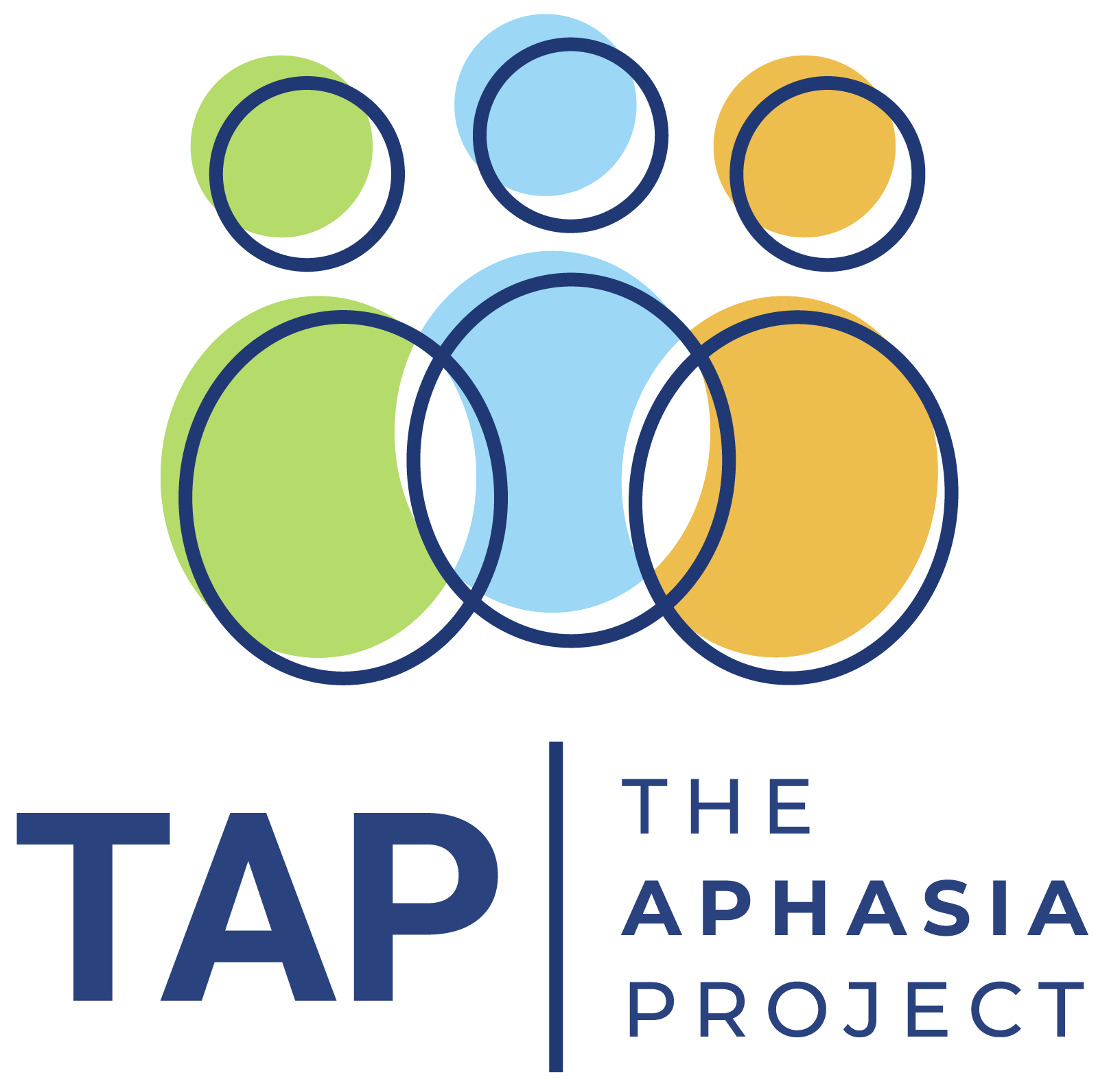
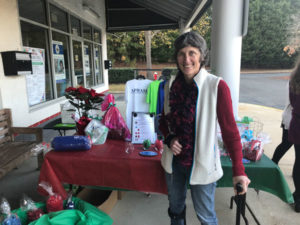
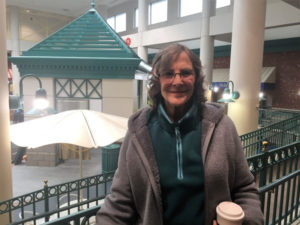

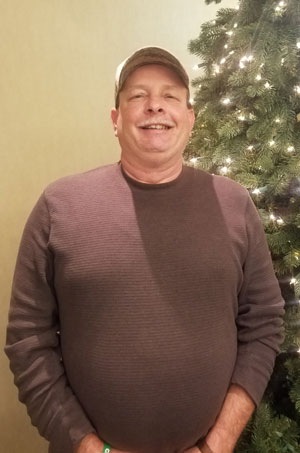


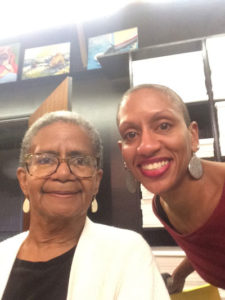

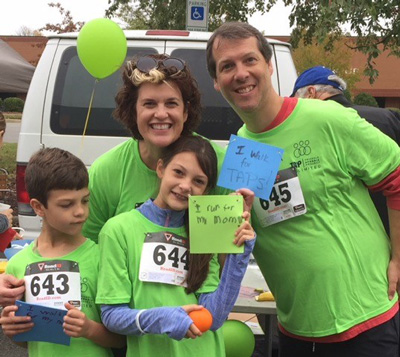
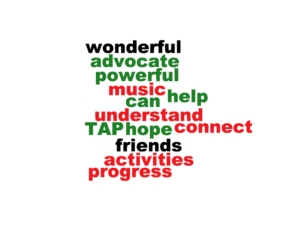
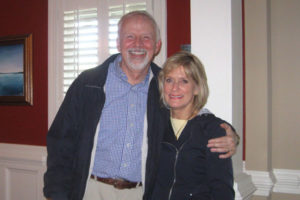
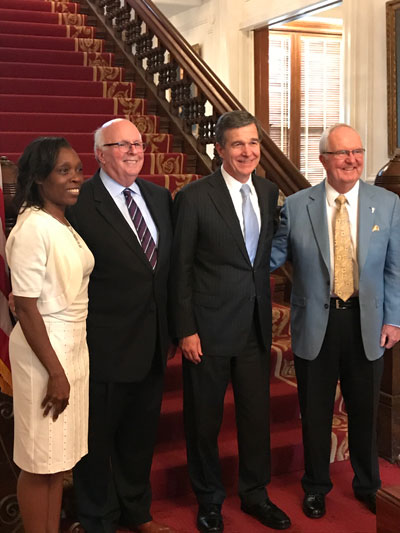
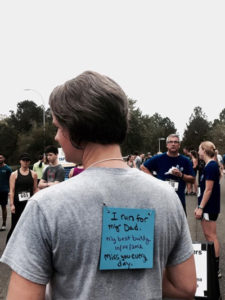
 Today (December 1st), I rode my bike to UNC to attend class and watched the trees shed the last of their leaves. It has now been 1874 days since my dad died and 1674 days since my traumatic brain injury.
Today (December 1st), I rode my bike to UNC to attend class and watched the trees shed the last of their leaves. It has now been 1874 days since my dad died and 1674 days since my traumatic brain injury.
